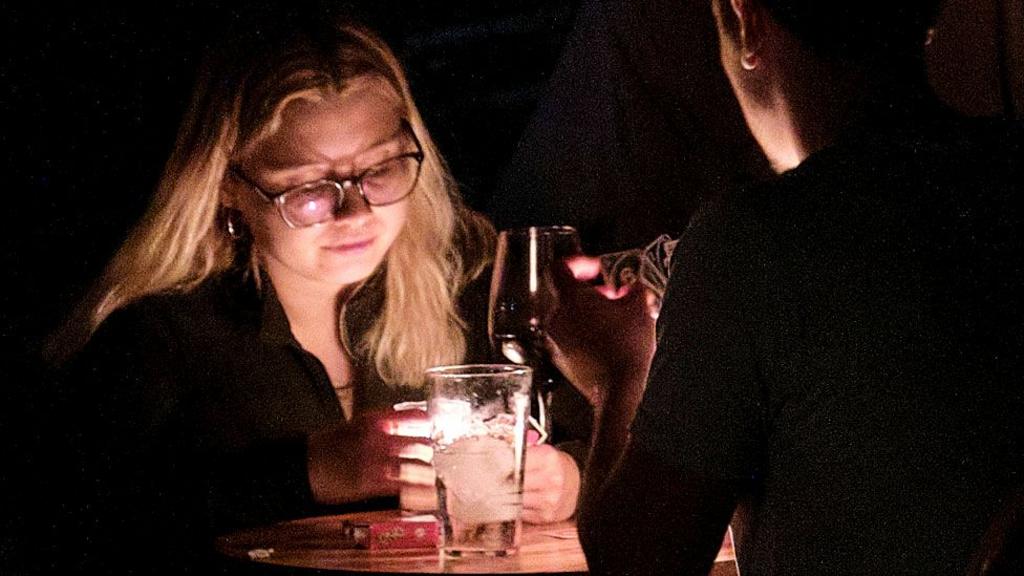The electricity outage brought daily life to a halt. How do you navigate a day with no power?
That was the stark reality for millions across Spain and Portugal on Monday amid the most extensive blackout these nations have ever experienced.
We spoke with individuals who lived through the day-long outage to find out what proved essential—and what items they realized they lacked most.
Digital payments are now commonplace, yet across Iberian cities, queues grew long at ATMs—among those still operational—as businesses reverted to cash-only transactions.
“When the power first went out, we could still pay for coffees by card, but afterwards we had no cash and couldn’t buy anything,” Ed Rowe, 26, from Madrid, told the BBC.
“Every restaurant that was open accepted cash only.”
Grace O’Leary, 32, also in Madrid, described counting coins with her mother to see if they had enough for wine at the local shop.
“Apparently, cash really is king.”
Jaime Gorgojo, 28, considered himself fortunate to have cash on hand, which allowed him to stock up on basics during the blackout.
“It was chaotic in Madrid—no metro, cash machines weren’t functioning.
I had cash but my flatmate didn’t, so I ended up lending him money.”
The outage also severed communications—residents spent hours without internet, WhatsApp, phone calls, or television access.
“The total loss of communication was confusing and unsettling… we were left piecing together information from neighbors and speculating about the cause,” explained Daniel Clegg, from Barcelona.
He said the lack of news left him scanning the skies, just to check if planes were still flying overhead.
For Siegfried and Christine Buschschlüter, an old wind-up radio provided a vital link to local updates after electricity and phone service cut out at their rural property outside Madrid.
Christine, 82, shared: “You had to keep winding and winding.”
“It felt surreal. I was born in Berlin during the war, and it reminded me of those days when my parents would struggle to get news—suddenly, I was transported back in time.”
The couple believe the blackout could drive a surge in demand for battery-powered radios.
Daniel agreed: “A portable radio is vital kit for emergency communication and staying informed—something I’d neglected until now.”
With so many modern appliances dependent on electricity—microwaves, air fryers, induction stoves—demand quickly shifted to food requiring no preparation.
Grocery stores experienced long lines and panic buying reminiscent of the early COVID-19 pandemic days.
“We stocked up on non-perishables like canned tuna, just in case,” actor Jaime noted.
“The outage only lasted a day, but now we’re left with lots of items that, luckily, will keep.”
Lesley Elder, in Fortuna, southeastern Spain, recalled: “Finding food that didn’t need heating was trickier than expected.”
“We ended up eating ham and cheese for dinner.”
She pointed out that a small gas stove would have made heating food much easier.
Across Spain and Portugal, residents turned to candles to illuminate their homes after sundown.
Richard, in Alcalá de Henares, noted that not a single street light was on after dark.
“People navigated by flashlight. Seeing the highway from my window completely blacked out was truly surreal,” he said.
“I make candles in my spare time, so fortunately, I had enough to see in the dark.”
Sarah Baxter in Barcelona even used a candle stove to warm her meals.
“We could heat beans and rice, and boil water for instant potatoes,” she explained.
“It was safer than using a propane camping stove indoors.”
Still, open flames and candles do pose fire hazards.
With no electricity, battery life became essential to staying connected.
In Madrid, tech shops saw crowds seeking portable chargers.
Sarah credits her solar charger for keeping both her phone and her elderly neighbor’s device powered throughout the ten-hour blackout.
Lesley noted her Kindle eventually died, saying: “No TV, no Scrabble app—I really wished I’d had more books.”
For some, the disconnect provided unexpected respite from screens and notifications.
“Relying less on technology is a good reminder to be more self-sufficient,” Ed observed.
“You don’t need to be online with everyone all the time,” added his flatmate Hannah Steiner, 23. “We actually enjoyed ourselves.”
Sara Francisco, 24, in Leiria, central Portugal, said the event highlighted the need to reconsider daily routines and habits.
Other recommended items from the UK government include bottled water, first aid kits, and baby supplies where appropriate.
Still dealing with the consequences of the power outage? Click here to share your experience or complete the form below.
Spanish grid officials say early findings indicate the blackout was not caused by a cyber attack.
There were widespread cheers as lights returned to Madrid after the major power interruption that halted daily life.
Trains stalled, telephones cut off, and checkout counters offline: the massive outage left the country in turmoil.
Spain has declared a national emergency, with scenes of disruption as millions were left without electricity.
To date, 96 departures have been grounded from Portuguese airports, with 45 flight cancellations in Spain as well.

